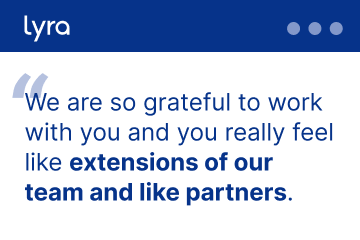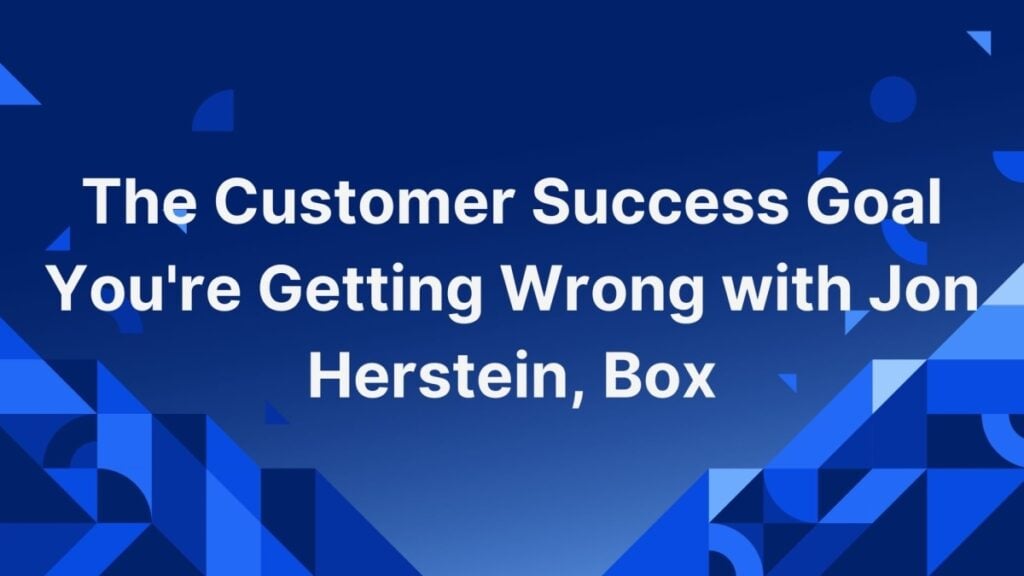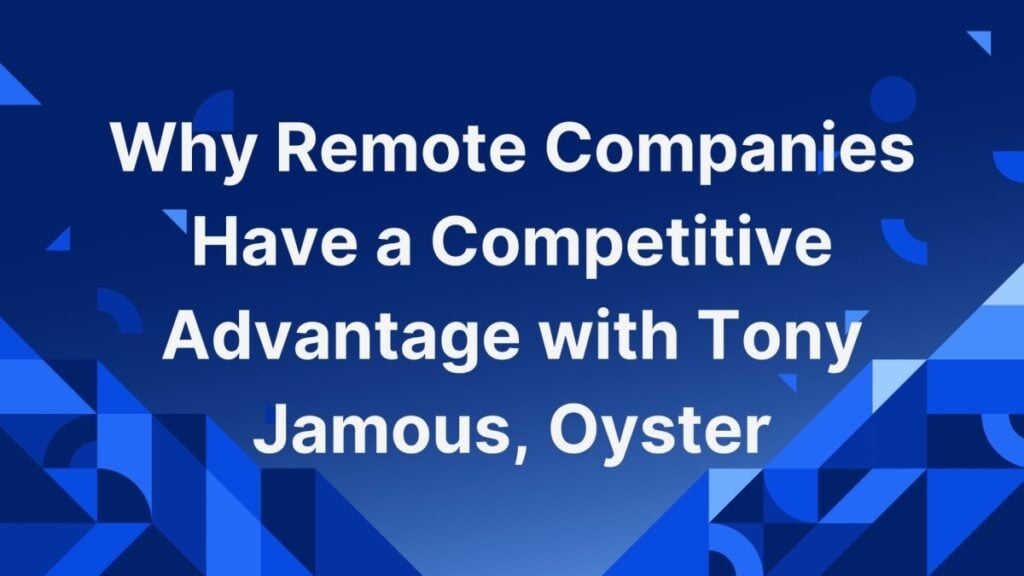-
 Resource Center
Resource Center
Discover enablement best practices and more in our resource center.
-
 Blog
Blog
Read the latest on enablement, learning and training trends.
-
 Podcast
Podcast
LEARN from the top leaders in SaaS.
-
 Videos
Videos
Watch videos and gain actionable insights from leading experts.
CEO Series: Top 5 Tips For Building a Values-Driven Company (Ep. 27)
No values mean no purpose, and no purpose means no success.
Well-thought-out and communicated values are critical for a successful organization.
"If you can really live and breathe your values, you're going to provide a lot of gains for your organization,” says our CEO and CEO of WorkRamp, Ted Blosser.

In this episode of LEARN, we close out 2023 with Ted sharing his top five learnings around building a values-driven company.
Tune in to learn from his experience so you can feel confident that your company’s values aren’t just words on a wall but what anchors your organization’s every move.
Key takeaways:
- Choose values that are reflective of your company's core identity
- Instead of relying on operating manuals, anchor your operations around your values, providing a guiding context for employees while allowing autonomy
- Actively live and breathe your company's values and consistently integrate them into daily practices
Listen on your favorite podcast app to hear Ted’s personal experiences around values and how you can live and breathe them.
Timestamps
[01:59] Build values around your company's core identity
[04:53] Use values to govern work
[08:28] Consistently reinforce values
[10:19] Don’t let the tail wag the dog
[13:05] Don’t change your values often
Resources
Transcript
Ted Blosser:
If you can really live and breathe your values, you're going to provide a lot of gains for your organization.
Welcome to the LEARN podcast, where we interview top leaders in tech and learn about how they're building the world's most innovative companies.
I'm Ted Blosser, CEO and Co-Founder of WorkRamp, the world's first learning cloud platform.
Our mission is to help professionals reach their full potential through learning, and the LEARN podcast is where we can learn from the best leaders at the top of their game.
Please subscribe, leave us a rating, and we hope you enjoy the episode.
Welcome back to the LEARN podcast. Excited for today's episode.
This is a solo episode where I talk about things that are top of mind from a company-building perspective. And what I wanted to talk about today is a really important topic and it's going to be all around values. When you do your research out there, there's actually not that much that's written about how you actually use values day to day in a company, how you come up with them, and how you use them to govern your organization. So what I thought I'd share are some interesting learnings that I've personally experienced around values and how you can live and breathe them throughout your organization. On a daily, weekly, or quarterly basis. And so, to give you some context heading into this, these are going to be my personal learnings. you may or may not, find them applicable to you, but they're my learnings from running WorkRamp, heading into our ninth year here. we've raised about, 70 million in venture capital.
We have over a hundred employees, and we've learned, a lot of the great things, values can do for you, but also the things that can hurt you if you don't actually have strong values in place. And so what I like to do is share those five big learnings that we've had over the years, and hopefully, they'll help you as you think about building a values-driven culture. So with that, let's jump into it. The first key lesson, I'll tell stories around each of these. The first key lesson here is that you want to Build values around the founder's DNA. And so I'll tell you the story here. when we first started WorkRamp first, we didn't take value seriously enough and we took too long to actually get them in place, but the first way we came up with these values, I've heard these stories, over and over is that we took a very egalitarian approach to coming up with values. What we did is.
We took the team at that time. It was about five to six people. We brought them all into a conference room for an afternoon and we just brainstormed values that were important for each of us. And we came up with something like 11 values after that meeting. And, what happened is that when we looked at those 11 values, I realized I didn't even believe in three to four of those values at all. But we were being polite and again, egalitarian in the sense that, Hey, we wanted everyone to contribute. And so we took the best from each party in that room. And what I realized is if I didn't even believe in those values, I probably wasn't going to push them hard as the CEO and founder.
And so, to no one's surprise, these values kind of died on the vine. We didn't really talk about them, shortly after that meeting. And so essentially became a waste of an exercise and we didn't really get far with those values that were. built up from a group-based approach. And so what we changed when we actually got serious about values, and this was actually a couple of years later, after the fact is that me and my co-founder Arsh, we sat down and we said, you know what, what are the values that us as founders, that we as founders. Care a lot about what values represent us as individuals. And we came up with those four values for us. They were always be improving.
That was kind of our learning value. It was operational excellence. We want to have strong operations in the company. That was one team. We cared a lot about collaboration and then also customer focus. We care a lot about our customers and we still do, and we want to put them at the center of everything we do. And so it was just a two-person exercise. We said, let's go, work with these values and those have been our values ever since.
I believe we came up with those in 2018 and we haven't touched them in the last five years or so. And, that's just really important that you are the DNA of your company and the founders, the, people who are going to probably be the most consistent in the company. And if you look at even the greatest companies today, they still have their founder's DNA built into. If you look at Apple, for example, very design-focused that came with its original founders of a, Steve Jobs and, Wozniak was a little less, design-centric. But, it was a very product-driven culture from the start, in terms of values and you want to make sure you get those from you, not, from a group-based consensus-building exercise. All right, the second big learning lesson around values is you want to use values to govern work, and you don't want to use operating manuals and I'll give you a little bit of background on what this means. And so if anyone's read the book, Principles by Ray Dalio, great book. And it's essentially just a book of a bunch of principles.
I don't remember the exact count, but it's dozens and dozens of principles that Ray Dalio has learned over the years. But he was getting Ray Dalio, although I admire him a ton. And I agreed with a lot of his principles, he was getting super prescriptive on how he thought people should show up to work. And even if you look at companies and these are great companies to like get lab as an example, who publishes their operating manuals online on how they operate the business. They're extremely principled and extremely detailed on essentially the playbooks for how you should run all parts of the business. And the thing that's tough about that, I actually had this temptation to do this for WorkRamp is actually even created my own version of our operating manual. And I literally was listing out all the ways we should show up to work. This was ranging from, Hey, how do you show up on video calls to how do you show up in front of customers? What are you doing in this situation? What are you doing in that situation? And I actually wrote this all up.
And I remember going to my executive coach and I showed it to her. I said, Hey, I want to actually go show this to the company. And she read it one night and she said, Ted, whatever you do not show this to the company. Do not send this out with an exclamation point. She said, this will really hurt your credibility and your employees will reject. Why would they reject it? It's because, from a leadership perspective, we shouldn't use or need to have, the ability to send out operating manuals to govern how people work. And she had a really, really great point that stuck with me ever since. She said, The reason you have values in a company is to govern how people work and how you want them to work.
And what you want to do is anchor around those values. They set great context, but then let people figure out how to work within that context. They don't want to be told what to do. They want to know the North Star of your values and they will adapt to those. They'll actually remember those and they'll be able to, essentially work in the way you want them to work. But make it values-driven, not operating manual-driven or documentation-driven. So such a good learning lesson. I credit a ton of this to her.
And so when you come back to operating your company, you want to think more about, let's give context, not prescriptive instructions, give context that people understand what the North Star is, but they also have a lot of autonomy and flexibility within. That context. All right. The next one. I like to say that this is all about constantly reinforcing your values. So the lesson here is to reinforce your values. And so in that scenario that I talked about earlier, we didn't reinforce those values with the 11 values we had, but it basically died off the vine, in a short few days. And the one thing I've learned about.
People really adopting values is that you have to constantly reinforce them. And, this means you need to live and breathe them, talk about them all the time. you always have that example. Now, a lot of us aren't in the offices. You can't just post them on a wall and never come back to them. Or in your hallways, you need to consistently reinforce them. And so I want to pull out a few examples of how we even consistently reinforce our values. First, we have a Slack channel dedicated to, how people live and breathe our values.
We call this the props channel. So. In it, if you even look at our own internal channel, you have 10 to 15 messages a week about people calling other colleagues out and giving them props on how they live the values of our business. And that's a great reinforcement almost on a daily basis of our values. We also put this on our intranet. We call these command centers, really a confluence page. And it's the front page of the intranet. So every time you pull up our intranet.
You see your values front and center. We also put our values into the recruiting process. So in our scorecards, we ask, how did the people that we interviewed rank back to our values and we even put it into performance reviews when we're doing our annual performance reviews. We have a question all about how did the individual. Live and breathe our values. And so you need to make sure you constantly reinforce your values on a daily basis to make sure people can continue living and breathing them. All right. The fourth lesson, is a really fun one.
and it's actually, I think a very pertinent topic for a lot of people today. I call this don't let the tail. Wag the dog when it comes to values. And what this really means is that when we talk about creating your values from the start, and hopefully you can do that from the founder's DNA is you will have evolutions of the company. When people want to bring in new values because everyone brings in new voices and it's not it's saying new voices are bad or new Ideas are bad, but you don't want to allow those voices and new values to override Your existing values i'll give you two good examples of this one's a personal example. one you've seen in the news one is at A company I was at before WorkRamp, what I personally experienced was that there was a leader who came in into our team who had a different set of values. He was a little more confrontational. He wanted to be a little more territorial and it's actually kind of working like his, he didn't have bad intentions.
He just wanted the company to move more quickly and faster. but what I realized was that the style of values Was it was doing well in the short term, but over the long term, the organization rejected it and probably for good cause, cause it was actually causing more damage than it was causing, productivity in the organization. And so you want to make sure you don't allow the tail, a small part of the organization. Override the direction the dog is headed. I get another example is Coinbase. This is more of a public example here where Coinbase was famously, very vocal about how they had a minority of employees. Who were very socially influenced? They want to talk about societal issues within the workplace and whether you agree with them or not, the CEO, Brian Armstrong at the time said, Hey, the values from a founder perspective is I want to leave societal.
Discussions outside of the workplace and I care solely about the crypto mission and it was his choice to make that right and he basically said, look, this is how I want to run the organization. I don't want to allow the tail to wag the dog or our dog in this scenario or in this analogy is crypto and our mission around crypto and we're going to push every other value aside. Doesn't tie back to that original mission that we set out on. And so you want to make sure that from a values perspective, you always got to watch out that, you will maybe see a creep of new values into the organization yet to make sure you defend against that, in order to uphold your original values. Otherwise, you just become a hodgepodge of a bunch of different values and you lose your core. Identity. The last one I have here is, this is more of an operational tip when it comes to values, which is don't change or add to them often. And I've come into this tendency where at the beginning of every year, it's almost like, your New Year's resolutions where you have this tendency where you want to go and change your values.
Let's say there's something top of mind. for you that year, and you want to add in our scenario, fifth value or sixth value, or you want to change up a few values, and I highly recommend that you rarely change the values. I would say the shelf life of your value should be three to five years at a minimum where you're not really changing them. Otherwise, they're not really your values because you don't live and breathe them all the time. And, I'll give you a counterexample to this of, changing values. And it's okay to change these every once in a while. but, I was listening to a podcast, from the founder of LaunchDarkly. Her name is Edith.
And she was talking about how she had a value. from the early days called work is not life. And this is actually a very, good value early on for her, but she used an example where in the later stages of the company, employees were using it as an example to say, Hey, I'm going to push back on, essentially working hard. And she was, paraphrasing that people were weaponizing that value, to essentially, work against the values that she wanted to push in the business. And so in this scenario, she actually had a pretty good shelf life for that specific value. Work is not life. And I do think she had that in place for about three to five years, but then she was flexible enough. She made a good point.
It's like, Hey, after that shelf life, it is okay. Changing those values. Yeah. But don't do it often. And so, what I want to share is that you don't want to, you want to fight against that tendency to change your values based on the direction the wind is blowing, but make sure that, Hey, if you are going to make a change, that's very well thought out and that that new value you're bringing in is going to have a three to five-year shelf life, from there. And again, sometimes you just have to change these in the scenario like Edith But what you want to do is try to keep them as consistent. So hopefully you enjoyed that walkthrough of my personal learnings around values. Again, it's something that we don't really think about much beyond writing them, in our org charter and then referring back to them often.
But again, if you can really live and breathe your values, you're going to provide a lot of gains for your organization. So I suggest that you make sure you pay a lot of attention and care to your values moving forward. Thanks so much for listening today. We'll catch you at the next pod.
Thanks for listening to the LEARN podcast. If you're a fan of the podcast, do us two favors. One is to subscribe to it so you can get the latest update of our most recent episodes and, two, write a short review of the podcast. This helps us get discovered in the broader podcast community. Thanks again.

_Nav.png?width=360&height=240&name=Employee_LC)_Nav.png)
_Nav.png?width=360&height=240&name=Customer_LC)_Nav.png)





